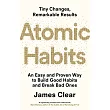兩位作者觀察到,今天不僅是企業員工、自由工作者,每個工作人似乎都面對著超時工作、競爭壓力、無所不用其極的的工作文化,久了,它好像成為一種不得不有的工作態度,才能在職場裡生存。但作者們根據自己創設公司的案例打破這種迷思,為了工作「焦頭爛額」,我們真正需要的是「平靜Calm」,並提供具體實踐法
Jason Fried and David Heinemeier Hansson, the authors of the New York Times bestseller Rework, are back with a manifesto to combat all your modern workplace worries and fears.
In this timely manifesto, the authors of the New York Times bestseller Rework broadly reject the prevailing notion that long hours, aggressive hustle, and "whatever it takes" are required to run a successful business today.
In Rework, Jason Fried and David Heinemeier Hansson introduced a new path to working effectively. Now, they build on their message with a bold, iconoclastic strategy for creating the ideal company culture—what they call "the calm company." Their approach directly attack the chaos, anxiety, and stress that plagues millions of workplaces and hampers billions of workers every day.
Long hours, an excessive workload, and a lack of sleep have become a badge of honor for modern professionals. But it should be a mark of stupidity, the authors argue. Sadly, this isn’t just a problem for large organizations—individuals, contractors, and solopreneurs are burning themselves out the same way. The answer to better productivity isn’t more hours—it’s less waste and fewer things that induce distraction and persistent stress.
It’s time to stop celebrating Crazy, and start celebrating Calm, Fried and Hansson assert.
Fried and Hansson have the proof to back up their argument. "Calm" has been the cornerstone of their company’s culture since Basecamp began twenty years ago. Destined to become the management guide for the next generation, It Doesn’t Have to Be Crazy at Work is a practical and inspiring distillation of their insights and experiences. It isn’t a book telling you what to do. It’s a book showing you what they’ve done—and how any manager or executive no matter the industry or size of the company, can do it too.
‘This book is funny, well written and iconoclastic and by far the best thing on management published this year.’ – The Economist



 天天爆殺
天天爆殺  今日66折
今日66折 

























 博客來
博客來 博客來
博客來 博客來
博客來 博客來
博客來 博客來
博客來